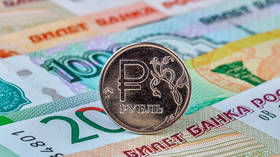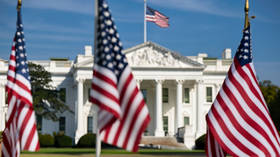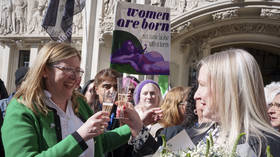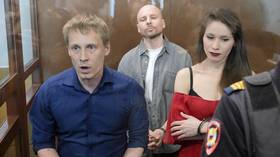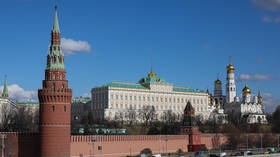‘New era of astronomy’: Gravitational waves detected for 2nd time, backing up theory of relativity
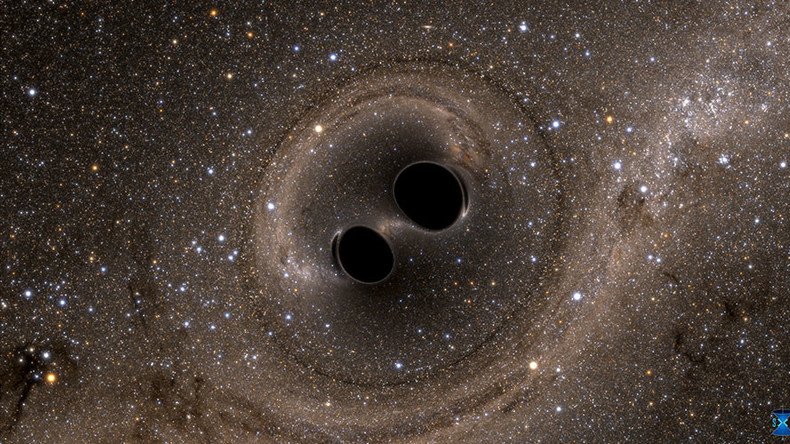
Scientists from the Laser Interferometer Gravitational-wave Observatory (LIGO) have announced they have detected gravitational waves from a pair of colliding black holes for the second time, thus backing up the theory of general relativity.
The international collaboration LIGO, with nearly 1,000 scientists working together, made the breakthrough announcement during a media conference taking place simultaneously in Lomonosov Moscow State University (MSU) and the San Diego Astronomy Association on Wednesday.
“Detecting the gravitational waves from the merger of two black holes by LIGO’s detectors for the second time is highly important,” said MSU physics department professor Valery Mitrofanov, adding that this underpins gravitational wave astronomy.
This time the movements of galactic fabric were picked up by LIGO’s twin detectors - one in Livingston, Louisiana, and another in Hanford, Washington – on December 26, 2015.
"It is important that the second signal was generated by the black holes with relatively small mass and it better corresponds to predictions made by astrophysicists. Now we can be more confident that the first event was not a rare exception,” said MSU physics department professor Farid Khalili.
Peak #gravitationalwaves power of #GW151226 more than combined light power of all stars in observable Universe. https://t.co/Kv9vEKOPgq
— LIGO (@LIGO) June 15, 2016
The first detection of the waves, the possible existence of which has been one of the biggest mysteries of the past 100 years, happened on September 14, 2015 and was announced in February.
READ MORE: Gravitational waves for dummies: Key facts about Einstein's unsolved mystery
The breakthrough discovery that opened a new door to the universe has been named the biggest in physics in a century.
Unlike the first time, when the signal was clearly distinguishable, this time it was weaker, say scientists from Moscow State University.
#GW151226 spent ~1 second in @LIGO sensitive band of frequencies, much longer than first detection #GW150914 did. pic.twitter.com/gfR8fdkB3R
— LIGO (@LIGO) June 15, 2016
However, by using special techniques scientists were able to separate the signal, which was mixed with other galactic noises, and to make it distinct.
It was concluded that the waves detected for the second time were produced in the last fraction of a second when two black holes with masses 14 and 8 times bigger that the Sun’s merged into one massive swirling space-time body.
READ MORE: RT talks to LIGO physicist Kip Thorne on detecting gravitational waves (EXCLUSIVE)
“By being exotic, gravitational waves - these flying pieces of space-time curvature – have become a source of new information about the universe and opened the era of gravitational astronomy," said Sergey Vyatchanin, professor of the MSU’s physics department.
Mass estimates for two #GW151226#blackholes centred at about 14 and 8 times Sun's mass. #gravitationalwavespic.twitter.com/Uk0lPGhSgT
— LIGO (@LIGO) June 15, 2016
Since the 1970 scientists had good circumstantial evidence of the existence of such waves, which were first described by Albert Einstein in 1916 in his General Theory of Relativity. Looking at the universe as a huge trampoline – Einstein thought of it as space-time fabric – gravitational waves are like ripples in that fabric. The collision of two black holes or merging of two pulsars are among the presumable causes of such waves' formation.
We are 99% certain that mass of the smaller object is more than 4.5 solar masses, which means #GW151226 is a #blackhole merger!
— LIGO (@LIGO) June 15, 2016
Although Einstein predicted that gravity travels in waves a century ago, detecting gravitational waves was not an easy task due to the fact that their effect is miniscule and easily confused with random noise.



